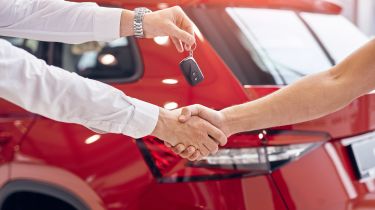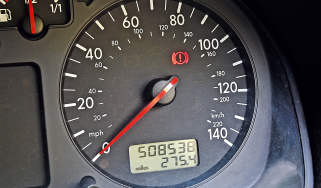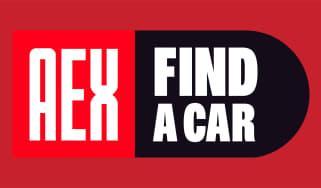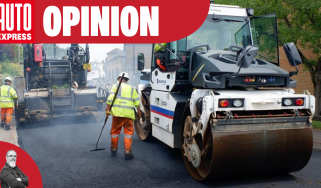Can you part-exchange a car on finance?
Want to get out of your car finance deal early and part-exchange the car for a new one? Here’s how to go about it…

Financing a car is the best way of getting into your perfect vehicle without stumping up a huge sum of cash to pay for it all at once - but sometimes you might want to trade into a different model before your existing finance deal term is up.
The good news is that doing so is far from impossible, but you will need to know a few things beforehand so you can settle the existing finance agreement. Our guide below explains the process of part-exchanging your car on finance, the steps you’ll need to go through at a dealership, and the answers to any questions you might have.
What is part-exchange for cars?
Part-exchanging a car is when rather than selling your car for cash, you use its value as partial payment on another car at a dealership. The part-exchange value of a car tends to be worth a little less than its market value but many people are happy to do it simply for the convenience. Depending on the value of your car, it may contribute a few hundred pounds, a few thousand, or it could completely cover the initial payment for the vehicle you’re replacing it with.
Can you part-exchange a car on finance?
You can part-exchange a car that you have a finance agreement on, though it adds a little more complexity to the normal process of part-exchanging a car. This is because while you’re still in a finance agreement, you often don’t own your car, the finance provider does - so when you part-exchange, the remainder of the finance has to be settled somehow first. This depends on a few factors, including:
The type of finance agreement
There are several different types of finance agreement, with the main ones being Personal Contract Purchase (PCP), Hire Purchase (HP), and car leasing (Personal Contract Hire, PCH). With PCP and HP agreements, you will be able to part-exchange the car – provided a minimum number of payments have already been made. PCP is probably the easiest because at a certain point in the term, you are typically given three options anyway – paying off the car with a large ‘balloon’ payment, handing the car back, or part-exchanging it.
Leasing is the exception, since you don’t own the car, or any part of it, at all during the lease. However many payments you’ve made on it, it isn’t yours to sell or part-exchange on another car. In this instance, if you want a new car you’ll either have to trade for another through the leasing company, or end your lease and negotiate a separate deal on another car.
The amount of equity
You might have heard of negative equity in terms of housing, where you have more left to pay on a property than it would be worth if you came to sell it. The same can happen with cars too, though naturally the stakes aren’t quite as high given cars tend to be cheaper than houses. Positive equity is the opposite – where your car’s value exceeds the cost of settling the finance.
PCPs often have a ‘guaranteed minimum future value’ figure, which guarantees the value of the vehicle at the end of the deal’s term, based on an initial estimate. It’s the figure the finance provider will use to calculate the final balloon payment (so if you want to buy the car later down the line, this is what you’ll pay), and it can be used as the part-exchange value, too. In theory, this guaranteed value should also protect you from negative equity.
How does part-exchange work on a finance car?
Part-exchange on a financed car works similarly to part-exchanging a car you already own in its entirety – there are just a couple of extra steps in the process. Ultimately you’ll have to settle the finance agreement one way or another, but there are a few ways to do this depending on how you’re financing your car, which you can read about below.
Check your finance agreement
Whether you can part-exchange your car on finance or not depends on the finance agreement. You won’t be able to with a lease, but you can with a PCP or HP agreement – provided certain conditions have been met. You’ll need to check your agreement to see what these conditions are.
If you’re in negative equity, you’ll have to make up the difference between your car’s value and the part exchange figure, or settle this with your finance provider beforehand, and either way, any remaining finance on the car will be considered during the part exchange process.
Get a valuation of your car from the dealership
Dealerships will typically value your car for less as a part-exchange than you could get selling the car on the open market, a trade-off plenty of people are willing to make simply for the convenience of being able to get shot of one car and buy another at the same dealer.
However, like negotiating on any new car, you may be able to twist the dealer’s arm for a little more money in part-exchange, or you can shop around other dealers to see whether one offers you more for your car. Or you can simply walk away – like selling a car in other circumstances, you’re under no obligation to accept an offer that you’re not happy with.
Leave the rest to the dealer
If your finance agreement allows part-exchange, and you’re happy with the figure you’re being offered by the dealer (and of course, the deal you’re getting on your next car) then the hard part is over, and you can simply leave the dealer to sort the rest, from settling the remaining finance if that was part of the deal, to usual car-buying things like handling the V5C log book.
Alternative options to part exchanging your car on finance
If you’re financing a car but don’t want to go through the part exchange process to move onto something new, then there are other options.
The first is simply to pay off your finance agreement, be that continuing with the monthly payments on Hire Purchase, or paying the balloon sum at the end of a PCP. In either case, the car is then yours to do with as you wish – keep it, sell it, race it, turn it into a cube, whatever you like really.
If you plan to sell privately then you’ll certainly need to settle any finance remaining on the car, as selling a car with outstanding finance is illegal. Or, provided you’ve met the number of minimum payments in your agreement, or don’t wish to pay the final sum on a PCP, then you can hand the car back to the finance company, and hunt for something else in your own time.
Frequently Asked Questions
You can part-exchange a financed car if it’s on PCP or HP agreements, but not if you’re in a lease, where the car isn’t yours to part-exchange.
Did you know you can sell your car with Auto Express? Get the highest bid from our network of over 5,500 dealers and we'll do the rest. Click here to try Auto Express Sell My Car now...
Find a car with the experts









